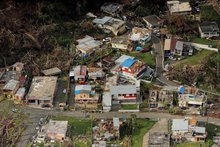0
Publication
Community:
Feb 27, 2019
Over the past two decades, criminal justice reform has focused on evidence-based interventions to prevent arrests and incarceration and to facilitate community reintegration. These initiatives represent a movement toward a less punitive, more holistic approach to public safety, targeting critical social factors that lead to and perpetuate criminal justice involvement. Because housing problems are often a key underlying factor for people’s involvement with the criminal justice system, there are ways housing interventions can help lessen criminal justice involvement. Decriminalizing homelessness, for example, can reduce rates of initial arrest and incarceration, especially for people with low-level, nonviolent offenses. A sufficient supply of affordable housing and supportive services could help people stabilize after their release from jail and reduce the likelihood of recidivism. Policymakers, advocates, and practitioners in housing and criminal justice systems can partner to promote and evaluate housing strategies that divert people from the criminal justice system.
Authored by: Kimberly Burrowes for How Housing Matters (Urban Institute)
Topics: Criminal justice, Homelessness, Housing, Legislation & Policy, Low-income, Research, Stability
 Shared by Mica O'Brien
Shared by Mica O'Brien
Mica O'Brien posted a
on Feb 28, 2019
Kimberly Burrowes for How Housing Matters (Urban Institute)
Over the past two decades, criminal justice reform has focused on evidence-based interventions to prevent arrests and incarceration and to facilitate community reintegration.
0
Publication
Community:
Jan 31, 2019
For many years, the vulnerabilities of children experiencing homelessness have been glossed over on the assumption that their innate resilience would overcome the impact of homelessness. As someone who worked in the field, I would often hear, “Oh, they’ll never remember.” Today we know better. We know more about how the brain develops and about how trauma impacts brain development. There is a growing recognition among providers that these early years are critical for establishing a foundation for emotional, mental, and physical wellbeing, and that we don’t get a second chance at early childhood.
Authored by: Carol Klocek for SchoolHouse Connection
Topics: Early childhood, Education, Homelessness, Housing, Low-income, Research, Safety, Stability
 Shared by Housing Is
Shared by Housing Is
Housing Is posted a
on Feb 21, 2019
Carol Klocek for SchoolHouse Connection
For many years, the vulnerabilities of children experiencing homelessness have been glossed over on the assumption that their innate resilience would overcome the impact of homelessness. As someone who worked in the field, I would often hear, “Oh, they’ll never remember.” Today we know better.
0
Video
Community:
Feb 13, 2019
U.S. House Committee on Financial Services, Full Committee
Authored by: U.S. House Committee on Financial Services
Topics: Funding, Homelessness, Housing, Legislation & Policy, Research, Stability
 Shared by Mica O'Brien
Shared by Mica O'Brien
Mica O'Brien posted a
on Feb 19, 2019
U.S. House Committee on Financial Services
U.S. House Committee on Financial Services, Full Committee
0
News Article
Community:
Feb 12, 2019
The Board of Supervisors on Tuesday gave the green light for San Diego County to apply for up to $125 million in state funding to help people get off the streets and receive mental health treatment.
Authored by: Alexander Nguyen for Times of San Diego
Topics: Funding, Homelessness, Housing, Legislation & Policy, Low-income, Mental health, Stability, Substance abuse, West Coast
 Shared by Mica O'Brien
Shared by Mica O'Brien
Mica O'Brien posted a
on Feb 14, 2019
Alexander Nguyen for Times of San Diego
The Board of Supervisors on Tuesday gave the green light for San Diego County to apply for up to $125 million in state funding to help people get off the streets and receive mental health treatment.
0
News Article
Community:
Feb 4, 2019
The U.S. territory needs to urgently tackle issues such as "widespread informal housing" and "the exorbitant amount of abandoned spaces" as it rebuilds after Hurricane Maria.
Authored by: Nicole Acevedo for NBC News
Topics: Community development, Food insecurity, Funding, Homelessness, Housing, Legislation & Policy, Nutrition, Safety, Stability, U.S. Territories
 Shared by Housing Is
Shared by Housing Is
Housing Is posted a
on Feb 4, 2019
Nicole Acevedo for NBC News
The U.S. territory needs to urgently tackle issues such as "widespread informal housing" and "the exorbitant amount of abandoned spaces" as it rebuilds after Hurricane Maria.
0
News Article
Community:
Jan 25, 2019
A long understudied facet of the American housing market, evictions have hit no area of the country harder than the South, a region home to most of the top-evicting large and mid-sized U.S. cities, according to a list released by Princeton’s Eviction Lab.
Authored by: Max Blau for The Telegraph
Topics: Homelessness, Housing, Research, South, Stability
 Shared by Mica O'Brien
Shared by Mica O'Brien
Mica O'Brien posted a
on Jan 31, 2019
Max Blau for The Telegraph
A long understudied facet of the American housing market, evictions have hit no area of the country harder than the South, a region home to most of the top-evicting large and mid-sized U.S. cities, according to a list released by Princeton’s Eviction Lab.
0
News Article
Community:
Jan 30, 2019
More than 130,000 households in Los Angeles County receive some form of federal rental assistance and were at risk of not being able to pay their rent if the shutdown had lasted through the end of February. But the mere threat of thousands of poor people returning to homelessness in L.A. — and the possibility of that threat happening again — has rattled government officials and affordable housing advocates.
Authored by: Benjamin Oreskes and Doug Smith for The Los Angeles Times
Topics: CLPHA, Funding, Homelessness, Housing, Legislation & Policy, Stability, West Coast
 Shared by Housing Is
Shared by Housing Is
Housing Is posted a
on Jan 30, 2019
Benjamin Oreskes and Doug Smith for The Los Angeles Times
More than 130,000 households in Los Angeles County receive some form of federal rental assistance and were at risk of not being able to pay their rent if the shutdown had lasted through the end of February. But the mere threat of thousands of poor people returning to homelessness in L.A.
0
Publication
Community:
Jan 24, 2019
Affordable housing campaigns are not new, of course, but what is unprecedented and transformative about Opportunity Starts at Home is the scope and diversity of the partners that are joining forces to advocate for more robust and equitable federal housing policies. The campaign is advised by a Steering Committee including leading national organizations representing a wide range of interests that are working shoulder-to-shoulder to solve the affordable housing crisis.
Authored by: Opportunity Starts at Home
Topics: Asset building, Child welfare, CLPHA, Community development, Early childhood, Education, Food insecurity, Funding, Health, Homelessness, Housing, Immigrants, Legislation & Policy, Low-income, Mobility, Out-of-school time, Partnerships, Racial inequalities, Safety, Seniors, Stability, Substance abuse, Youth
 Shared by Mica O'Brien
Shared by Mica O'Brien
Mica O'Brien posted a
on Jan 24, 2019
Opportunity Starts at Home
Affordable housing campaigns are not new, of course, but what is unprecedented and transformative about Opportunity Starts at Home is the scope and diversity of the partners that are joining forces to advocate for more robust and equitable federal housing policies.
0
News Article
Community:
Jan 22, 2019
A D.C. housing development serves as a refuge for grandparents raising young children. Is it a model for the rest of the country?
Authored by: Andrew L. Yarrow for The Washington Post
Topics: Child welfare, Dual-generation, East Coast, Family engagement, Low-income, Place-based, Seniors, Stability, Youth
 Shared by Mica O'Brien
Shared by Mica O'Brien
Mica O'Brien posted a
on Jan 22, 2019
Andrew L. Yarrow for The Washington Post
A D.C. housing development serves as a refuge for grandparents raising young children. Is it a model for the rest of the country?
0
Publication
Community:
Quality affordable housing can be a “vaccine” which prevents long-term health problems and promotes healthy, productive lives. When a family’s housing situation is unaffordable and unstable, chances to lead a healthy life dwindle rapidly.
Authored by: Opportunity Starts at Home
Topics: Child welfare, Health, Homelessness, Housing, Low-income, Partnerships, Seniors, Stability
 Shared by Mica O'Brien
Shared by Mica O'Brien
Mica O'Brien posted a
on Jan 18, 2019
Opportunity Starts at Home
Quality affordable housing can be a “vaccine” which prevents long-term health problems and promotes healthy, productive lives. When a family’s housing situation is unaffordable and unstable, chances to lead a healthy life dwindle rapidly.
0
News Article
Community:
Jan 14, 2019
The San Jose Unified School District has its own plan: raze aging school buildings, send their students to new facilities, and turn that land into affordable rental housing for at least 300 teachers and school workers.
Authored by: Dana Goldstein for The New York Times
Topics: Education, Housing, Low-income, Partnerships, Stability, West Coast
 Shared by Mica O'Brien
Shared by Mica O'Brien
Mica O'Brien posted a
on Jan 17, 2019
Dana Goldstein for The New York Times
The San Jose Unified School District has its own plan: raze aging school buildings, send their students to new facilities, and turn that land into affordable rental housing for at least 300 teachers and school workers.
0
News Article
Community:
Jan 16, 2019
In 2018, over half a million people experienced homelessness on a given night in the US. Of those, roughly one in three experienced unsheltered homelessness in a car, outside, or in other places not meant for human habitation.
Authored by: Aaron Shroyer How Housing Matters
Topics: Homelessness, Housing, Low-income, Stability, Supportive housing
 Shared by Housing Is
Shared by Housing Is
Housing Is posted a
on Jan 17, 2019
Aaron Shroyer How Housing Matters
In 2018, over half a million people experienced homelessness on a given night in the US. Of those, roughly one in three experienced unsheltered homelessness in a car, outside, or in other places not meant for human habitation.
0
Publication
Community:
Oct 9, 2018
Women with children, especially, stay hidden in fear of losing custody of their children. As a result, we will never see them camping in tents or in downtown parks.
Authored by: Mary Ellen Mitchell for SchoolHouse Connection
Topics: Early childhood, Homelessness, Housing, Legislation & Policy, Low-income, Safety, Stability
 Shared by Mica O'Brien
Shared by Mica O'Brien
Mica O'Brien posted a
on Jan 11, 2019
Mary Ellen Mitchell for SchoolHouse Connection
Women with children, especially, stay hidden in fear of losing custody of their children. As a result, we will never see them camping in tents or in downtown parks.
0
News Article
Community:
Jan 10, 2019
Island School is one of 247 “community schools” in New York. These are regular public schools, with a twist. They have longer days and longer school years: Island stays open 12 hours a day, six days a week, including spring and winter breaks as well as the summer. A psychologist makes weekly rounds. A dentist comes by regularly. So does an optometrist, and students who need glasses get them free.
Authored by: David L. Kirk for The New York Times
Topics: Community development, Dual-generation, East Coast, Education, Family engagement, Homelessness, Housing, Low-income, Mental health, Metrics, Partnerships, Stability, Youth
 Shared by Mica O'Brien
Shared by Mica O'Brien
Mica O'Brien posted a
on Jan 10, 2019
David L. Kirk for The New York Times
Island School is one of 247 “community schools” in New York. These are regular public schools, with a twist. They have longer days and longer school years: Island stays open 12 hours a day, six days a week, including spring and winter breaks as well as the summer.
0
News Article
Community:
Dec 24, 2018
When homeless people get released, their issues combined with living on the street will usually land them back in emergency rooms, costing hospitals like Harborview Medical Center — which operates on a thin margin — time and money. One solution is a type of respite program that provides short-term care to homeless patients who are too sick to be on the streets or in a shelter, but not sick enough to continue to take up a hospital bed.
Authored by: Scott Greenstone for The Seattle Times
Topics: Health, Homelessness, Housing, Pacific Northwest, Partnerships, Place-based, Preventative care, Stability
 Shared by Mica O'Brien
Shared by Mica O'Brien
Mica O'Brien posted a
on Jan 7, 2019
Scott Greenstone for The Seattle Times
When homeless people get released, their issues combined with living on the street will usually land them back in emergency rooms, costing hospitals like Harborview Medical Center — which operates on a thin margin — time and money.
0
Interactive
Community:
A building-level interactive map that shows where residential tenants face displacement pressure and affordable apartments are threatened across New York City. Monthly reports on new harassment and displacement risk in rent-stabilized buildings by Community District and color-coded by risk factors.
Authored by: Association for Neighborhood & Housing Development
Topics: East Coast, Housing, Low-income, Stability
 Shared by Mica O'Brien
Shared by Mica O'Brien
Mica O'Brien posted a
on Dec 21, 2018
Association for Neighborhood & Housing Development
A building-level interactive map that shows where residential tenants face displacement pressure and affordable apartments are threatened across New York City. Monthly reports on new harassment and displacement risk in rent-stabilized buildings by Community District and color-coded by risk factors.
0
Publication
Community:
Apr 10, 2018
State and local governments are debating and adopting new landlord-tenant laws and pilot programs, such as expanded legal representation and just-cause eviction requirements. Yet, few housing experts understand evictions well enough to channel the demand for change into clarity about specific eviction problems and potential solutions. Now is the time for policymakers and advocates to get smart. Here are five strategies for policymakers to consider as they address America’s eviction crisis.
Authored by: Maya Brennan for Urban Institute
Topics: Housing, Legislation & Policy, Low-income, Research, Stability
 Shared by Mica O'Brien
Shared by Mica O'Brien
Mica O'Brien posted a
on Dec 21, 2018
Maya Brennan for Urban Institute
State and local governments are debating and adopting new landlord-tenant laws and pilot programs, such as expanded legal representation and just-cause eviction requirements.
0
Publication
Community:
Oct 1, 2016
This report examines strategies used by local governments to address rising housing costs and displacement of low-income households in gentrifying neighborhoods. To assist tenants at risk of displacement, the report details strategies to regulate the landlord/tenant relationship well as strategies to provide assistance for households that move. To create and preserve affordable housing, the report explores ways to use city-owned land and other resources strategically to promote affordable housing in areas where costs are on the rise. It also examines ways to harness the market, such as inclusionary zoning and linkage fees. The report is part of an ongoing series of work by the NYU Furman Center on gentrification, but is the first to provide an overview of policy responses to the effects rapidly rising rents.
Authored by: Jessica Yager, Luke Herrine, and Nadia Mian for NYU Furman Center
Topics: Community development, Housing, Low-income, Stability
 Shared by Mica O'Brien
Shared by Mica O'Brien
Mica O'Brien posted a
on Dec 21, 2018
Jessica Yager, Luke Herrine, and Nadia Mian for NYU Furman Center
This report examines strategies used by local governments to address rising housing costs and displacement of low-income households in gentrifying neighborhoods.
0
Publication
Community:
Dec 1, 2018
New York City’s UAC has generated substantial interest as other jurisdictions across the U.S. consider or implement similar programs. In June 2018, San Francisco voters approved a ballot initiative requiring the city to establish, fund, and run a program to provide legal representation to all tenants facing eviction regardless of income. The Los Angeles City Council approved a motion in August 2018 instructing the housing department to develop recommendations for a new eviction defense bill or program.
Authored by: Vicki Been, Deborah Rand, Nicole Summers, and Jessica Yager for NYU Furman Center
Topics: Housing, Legislation & Policy, Low-income, Stability
 Shared by Mica O'Brien
Shared by Mica O'Brien
Mica O'Brien posted a
on Dec 21, 2018
Vicki Been, Deborah Rand, Nicole Summers, and Jessica Yager for NYU Furman Center
New York City’s UAC has generated substantial interest as other jurisdictions across the U.S. consider or implement similar programs.
0
Research
Community:
Aug 19, 2018
On the 50th anniversary of the Fair Housing Act, there is growing discussion and concern about gentrification. In almost every American city, long-time residents feel increasingly
anxious that they will be priced out of their homes and communities, as growing numbers of higher-income, college-educated households opt for downtown neighborhoods. Yet when looking through the lens of fair housing, gentrification also offers a glimmer of hope, as the moves that higher-income, white households make into predominantly minority,
lower-income neighborhoods are moves that help to integrate those neighborhoods, at least in the near-term. The key question is whether this integration will last and help to deliver on the promise of the Fair Housing Act to promote and further integrated living. Inverting the famous words of community organizer Saul Alinsky, this integration may only be the time between when the first white moves in and the last family of color moves out.
Authored by: Ingrid Gould Ellen and Gerard Torrats-Espinosa for NYU Furman Center
Topics: Community development, Housing, Low-income, Mobility, Racial inequalities, Research, Stability
 Shared by Mica O'Brien
Shared by Mica O'Brien
Mica O'Brien posted a
on Dec 19, 2018
Ingrid Gould Ellen and Gerard Torrats-Espinosa for NYU Furman Center
On the 50th anniversary of the Fair Housing Act, there is growing discussion and concern about gentrification.
0
Publication
Community:
Dec 17, 2018
In response to the heightened interest in the relationship between work and the health of individuals and communities, CMCS has clarified that Medicaid funds cannot be used to pay beneficiaries’ wages, but can pay for employment counseling as an optional benefit—to help people get jobs. Years of experience with work requirements for the Supplemental Nutrition Assistance Program, Aid to Families with Dependent Children, and populations with disabilities have developed the evidence for what is needed to help different populations find and keep jobs.
Authored by: Christopher F. Koller for Millbank Memorial Fund
Topics: Affordable Care Act, Disabilities, Health, Legislation & Policy, Low-income, Medicaid / Medicare, Research, Stability, Workforce development
 Shared by Mica O'Brien
Shared by Mica O'Brien
Mica O'Brien posted a
on Dec 17, 2018
Christopher F. Koller for Millbank Memorial Fund
In response to the heightened interest in the relationship between work and the health of individuals and communities, CMCS has clarified that Medicaid funds cannot be used to pay beneficiaries’ wages, but can pay for employment counseling as an optional benefit—to help people get jobs.
0
Publication
Community:
Dec 17, 2018
Stricter work requirement policies for the Supplemental Nutrition Assistance Program (SNAP) at the federal level were left out of the recently passed farm bill, but state policymakers are still considering whether to expand or establish their own work requirements for SNAP and Medicaid, with the goal of incentivizing employment. There’s no question that good jobs help spur upward mobility. But if we are serious about helping people work, we have to get serious about helping people improve their skills.
Authored by: Gina Adams and Shayne Spaulding for The Urban Institute
Topics: Child welfare, Cost effectiveness, Dual-generation, Early childhood, Food insecurity, Legislation & Policy, Low-income, Research, Stability, Workforce development
 Shared by Mica O'Brien
Shared by Mica O'Brien
Mica O'Brien posted a
on Dec 17, 2018
Gina Adams and Shayne Spaulding for The Urban Institute
Stricter work requirement policies for the Supplemental Nutrition Assistance Program (SNAP) at the federal level were left out of the recently passed farm bill, but state policymakers are still considering whether to expand or establish their own work requirements for SNAP and Medicaid, with the goa
0
Publication
Community:
Dec 14, 2018
Health and reentry are closely related, and chronic medical, mental health, and substance use problems make it harder for newly released people to seek employment, obtain housing, and avoid reincarceration. Compared with the general population, justice-involved people tend to be in poorer health and need access to physical and behavioral health services, as well as the know-how and motivation to get care.
Authored by: Rochisa Shukla and Kamala Mallik-Kane for Urban Institute
Topics: Affordable Care Act, Criminal justice, Health, Legislation & Policy, Low-income, Medicaid / Medicare, Research, Stability
 Shared by Mica O'Brien
Shared by Mica O'Brien
Mica O'Brien posted a
on Dec 14, 2018
Rochisa Shukla and Kamala Mallik-Kane for Urban Institute
Health and reentry are closely related, and chronic medical, mental health, and substance use problems make it harder for newly released people to seek employment, obtain housing, and avoid reincarceration.
0
Report
Community:
Nov 1, 2018
The Colorado Division of Youth Services is working to transform the family experience by taking a two-generation (2Gen) approach to the services it provides.
Authored by: Tony Gheradini for Ascend: The Aspen Institute
Topics: Child welfare, Dual-generation, Early childhood, Family engagement, Low-income, Partnerships, Stability
 Shared by Mica O'Brien
Shared by Mica O'Brien
Mica O'Brien posted a
on Dec 13, 2018
Tony Gheradini for Ascend: The Aspen Institute
The Colorado Division of Youth Services is working to transform the family experience by taking a two-generation (2Gen) approach to the services it provides.
0
Webinar
Community:
Dec 11, 2018
CLPHA’s Education Working Group hosts a webinar including presentations on efforts from the Chicago Housing Authority to work with residents on pursuing postsecondary opportunities, as well as an update from HUD’s Office of Policy Development & Research on data collection around tracking and increasing FAFSA utilization.
Authored by: CLPHA
Topics: CLPHA, Cost effectiveness, Data sharing, Education, Funding, Housing, Housing Is Working Group, Low-income, Metrics, Midwest, Post-secondary, Research, Stability, Youth
 Shared by Mica O'Brien
Shared by Mica O'Brien
Mica O'Brien posted a
on Dec 12, 2018
CLPHA’s Education Working Group hosts a webinar including presentations on efforts from the Chicago Housing Authority to work with residents on pursuing postsecondary opportunities, as well as an update from HUD’s Office of Policy Development & Research on data collection around tracking and inc

 Shared by Housing Is
on Feb 21, 2019
Shared by Housing Is
on Feb 21, 2019




 Shared by Housing Is
on Feb 4, 2019
Shared by Housing Is
on Feb 4, 2019




 Shared by Housing Is
on Jan 30, 2019
Shared by Housing Is
on Jan 30, 2019



 Shared by Housing Is
on Jan 17, 2019
Shared by Housing Is
on Jan 17, 2019









